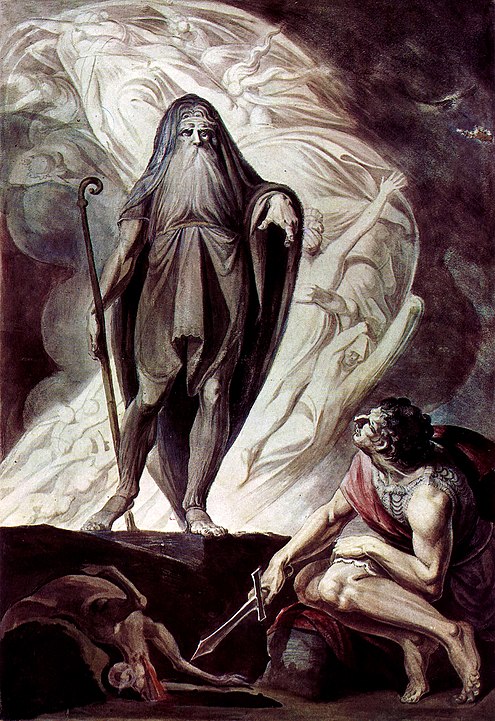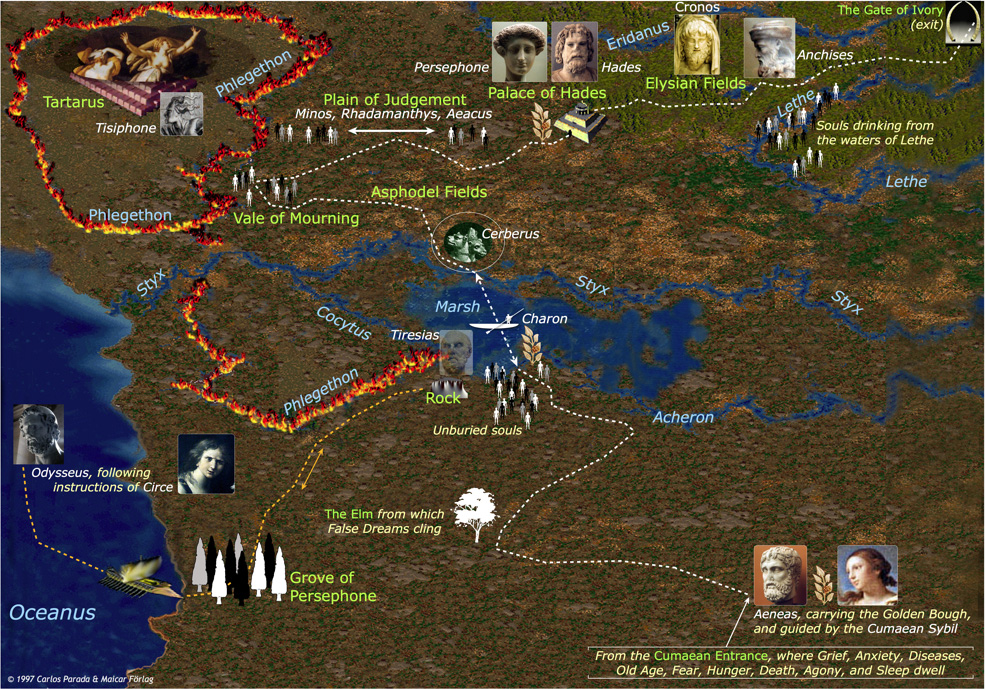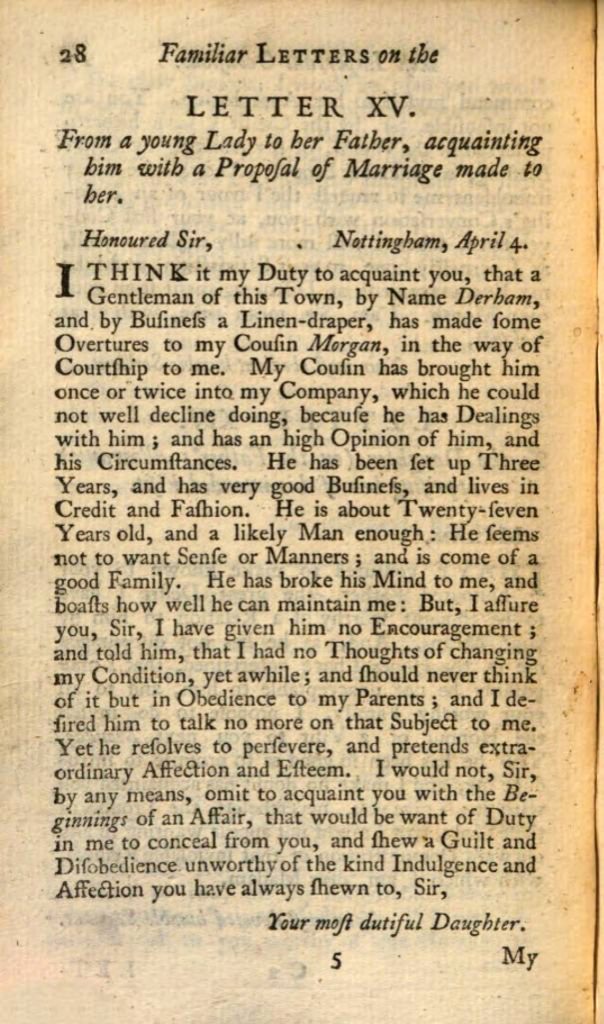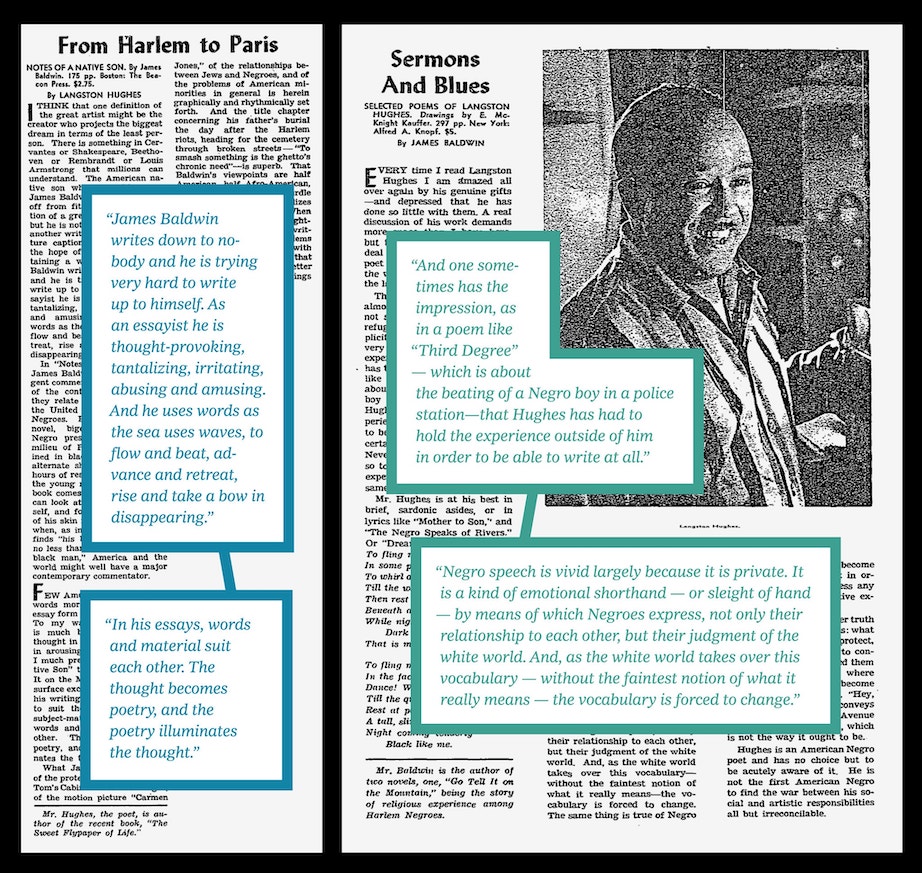Into darkness and back again
Hades can, and does, confuse – one place or many, a gate keeper or a god? Considering its place in the Christian tradition, is it synonymous to the notion of “hell” – that eternally punitive afterlife afforded all sinners? Or something more? Whichever – how unforgiving, and insufficient; for the ancient Greek god of the dead, Hades, and the underworld where he reigns, belong to a more complex system of mythology; essential to maintaining the tenuous balance that exists between the gods and mortal beings. Hades’ realm has room enough for justice, and for each soul its just deserts. To get one’s bearings right, here is a link to one explanation of this place where nobody wants to go and its inhabitants, and a colourful map of the underworld – and more.
Its performance having a pivotal function in Book XI, I should say that a nekyia is the cult-practice whereupon the shades (souls, spirits, ghosts) of the dead are called upon, and it is the rite which Odysseus must attend to in order to summon Tiresias. Necromancy may be a more familiar and encompassing word. And it is as the nekyia that this book of The Odyssey has been referred since antiquity.
book 11: The dead
pp. 279-300

Following the darkness to the misty land of the Cimmerians, Odysseus performs all the rites of the nekyia. Only then is he, first, confronted with the unfinished business of the fallen Elpenor, and promises that he will attend to a proper burial upon their return to Circe’s island. Enter then, Tiresias, given voice by the sacrificial blood; and tells Odysseus of the hard trials still awaiting him on his journey but gives also the promise that, should he resist all temptations, he may well return to Ithaca. But his return will not be unconditional, and he will find things not as they were; he must rid his home of those who cause trouble (that is, he must slaughter the suitors), he must make amends with sacrifices. This done, his people will prosper and he will have a long life and a good death.
And he speaks with the shade of his mother, Anticleia, dead from great sadness at Odysseus absence and his father’s ensuing grief, and who relays word of Penelope: “She stays firm. Her heart is strong. She is still in your house. And all her rights are passed in misery, and days in tears…”. More spirits of women gathered to tell their stories, of splendid lovers – gods and legendary heroes all – and sons (they only seemed to have sons!) born to greatness.
The Phaecians listened spellbound to Odysseus tale; enraptured by his prowess as story-teller and poet. Alcinous wonders whether he encountered the spirits of those with whom he fought at Troy and asks that he proceed, and Odysseus accedes to the King’s request. He relates more: of Agamemnon who tells of dying at the hands of Aegisthus and the scheming Clytemnestra, of Achilles, he who so longed for the immortality of a hero and would now rather ‘life’ as a poor peasant, but is still delighted at the news of his son’s success as man and warrior, and Ajax who does not speak and clearly holds a grudge, and those tormented, and Heracles.
Spooked enough by Hades’ ghostly inhabitants, Odysseus tells his audience how he gladly returned to his men, to then cast their ship again upon River Ocean; direction – dawn.



